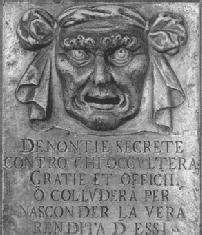Aims and Assessment
Aims and Objectives
This advanced option analyses the cultural, economic, political, social, and religious history of Venice and its empire from the late fourteenth to the late sixteenth century. It also sets developments in Venice against those in the princely courts of northern Italy. Whilst focusing on Italian states, the option also considers issues with a wider resonance. These issues include gender, charity, disease, violence, ritual, church reform, and cultural and economic change. The module makes use of an extensive range of primary sources. Living in Venice will familiarise students with the city and the module includes numerous site visits. The module draws on insights from neighbouring disciplines such as art history, anthropology, and economics.
Syllabus
1. The Myth and the City. Site visit: Torcello
2. The Empire of the Sea and the Empire of the Land. Site visits: The Arsenale and the Scuola degli Schiavoni
3. Politics. Site visits: The Doge’s Palace and the Museo Correr
4. The Material World. Site visits: Rialto and the Palladian Villas of Emo and Godi
5. The Princely Courts. Site visits: Mantua (The Ducal Palace and the Palazzo Te)
6. Travel Week
7. Society, Gender, and Minorities. Site visit: The Ghetto
8. Prostitution and Violence. Site visits: From Campo San Polo to the Ponte dei Pugni
9. Culture. Site visit: The Accademia
10. Religion. Site visits: The Scuola Grande di San Rocco and the Basilica di Santa Maria Gloriosa dei Frari
Expected Learning Outcomes
- To evaluate and critique the cultural, economic, political, social, and religious history of Venice and its empire from the late fourteenth to the late sixteenth century.
- To understand how the history of Venice can be accessed through a diverse range of textual, visual, and material sources, including the city of Venice itself and its former territories.
- To analyse and compare different types of sources, and enhance their ability to develop a historical argument.
- To engage with historiographical debates and think about the history and legacy of different historical concepts.
- To encourage independent research, historiographical engagement, and the development of critical analysis.
Teaching
- Each week there is at least one site visit. These are linked to the themes to be discussed in the seminar. NB Attendance of site visits is obligatory and students are expected to provide medical or other evidence to explain absence.
- The weekly seminars last two hours. Attendance of seminars is obligatory and students are expected to provide medical or other evidence to explain absence.
Assessment and Examination
Assessment for this module is as follows:
- Oral participation/engagement in seminars (10%).
- 1500-word essay [the Campo exercise] (10%).
- 3000-word primary source review (40%).
- 3000-word essay (40%).
For visiting students from Ca' Foscari, the module is an assessed unit with 1 x 1,000-word essay plan and 1 x 3,000-word essay.
Seminar Contribution
- This will be assessed across all seminars according to the seminar contribution guidelinesLink opens in a new windowLink opens in a new window.
- There will be a summative end of module self-evaluation which will be adjusted by your tutor if necessary. This is an opportunity for you to reflect on your seminar contribution across the whole module.
- NB This will represent the assessed mark for the module. It will be based on the 20 point marking scaleLink opens in a new windowLink opens in a new window.
- NB You must submit the summative self-evaluation formLink opens in a new windowLink opens in a new window via Tabula according to the deadline on Tabula.
- NB You should provide detailed comments with examples of your contributions to large and small group discussions. Referring to the seminar contribution guidelinesLink opens in a new window will help you with this.
- NB Please submit the form as a Word document so that we can add feedback to it.
The Campo Exercise
For guidance about the Campo Exercise, please see here.
Primary Source Review
For guidance about the Primary Source Review, please see here. Suggested primary sources are listed here. For the different forms of primary sources, there is a bibliography here.
Essay
- Your essay should focus on the history of Venice or of the Venetian empire or of the courts of northern Italy between 1350 and 1650 and it should be based on primary and secondary sources.
- You may use one of the seminar questions as the question for your essay. If you would prefer another question, please speak with your seminar tutor and we can work out one together. In either case, your tutor is happy to advise you about primary and secondary sources for your essay.
Focus of Assessed Work
- Your primary source review and your essay cannot both focus on the princely courts.
- At least one of them should focus on Venice or on the Venetian empire.
- They can both focus on Venice or on the Venetian empire.
- Subjects discussed in your essay should not overlap significantly with subjects discussed in your primary source review. For example, if you focused on gender as part of your primary source review, do not write an essay which focuses on gender.
Submission of Assessed Work
For details of the submission of assessed work, click hereLink opens in a new window. NB The History Department uses the MHRA style guideLink opens in a new window. Please ensure that you follow this carefully, especially for the presentation of footnotes and bibliography.
For the deadlines for submission, please see Tabula.
Travel Week
No site visits and seminars will be held in Week 6. In this week, you are encouraged to travel in Italy.
Returning to Britain
Students may only return to Britain with the prior approval of the course director.
Contact Details
Before you arrive in Venice, please complete this webformLink opens in a new window.
Staff Office Hours
Staff office hours will be communicated to students in Week 1.

